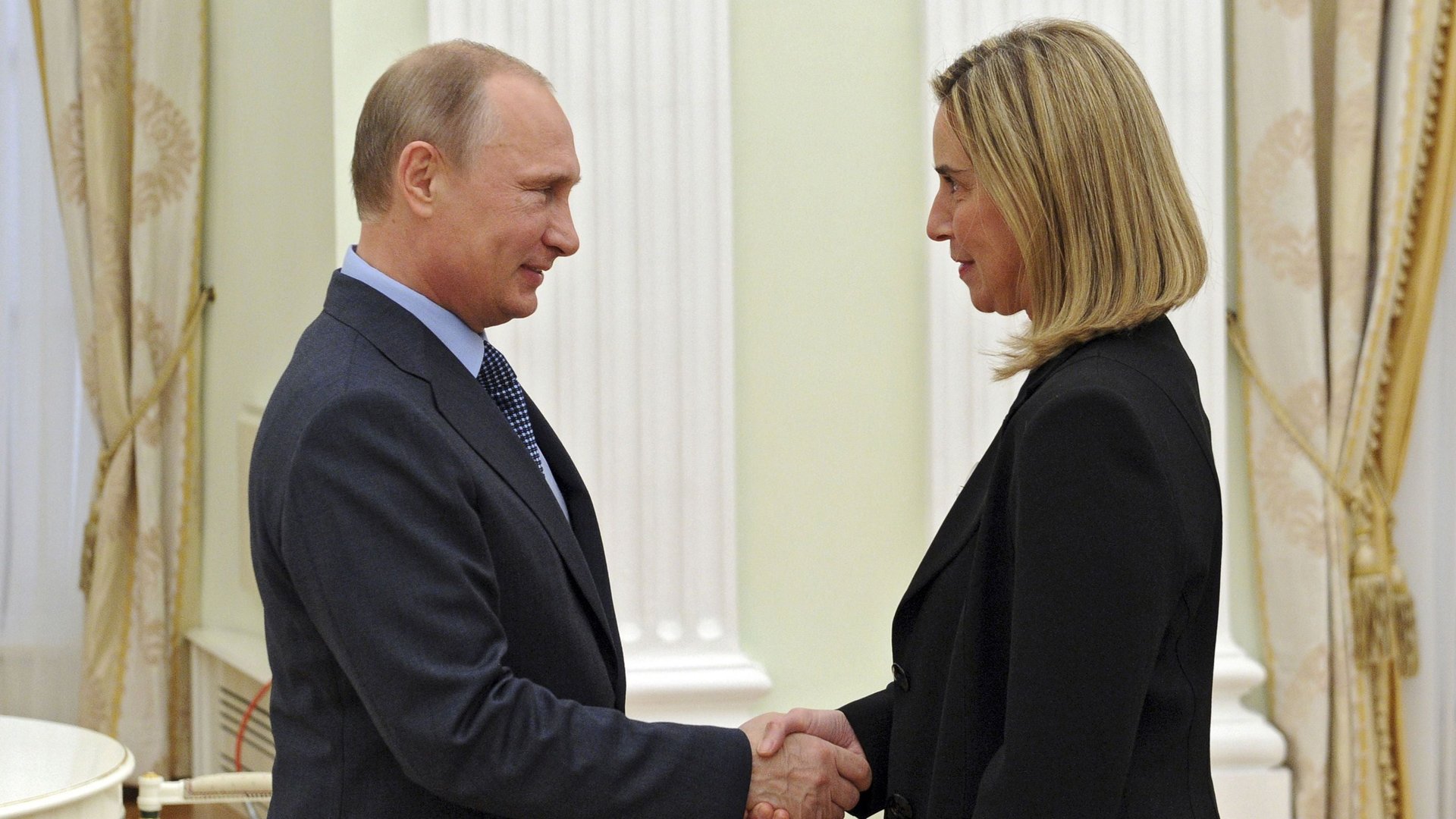The EU’s new foreign policy chief is everything Putin is not
The day after Federica Mogherini was nominated as the EU’s new foreign policy chief, she tweeted a picture of her handover notes. “At work,” she wrote.


The day after Federica Mogherini was nominated as the EU’s new foreign policy chief, she tweeted a picture of her handover notes. “At work,” she wrote.
Mogherini indeed has a lot of work to do. The 41-year-old former Italian foreign minister will take up the wider EU role at a particularly sensitive time for the bloc. (Her term will begin in November.)
The crisis in Ukraine has made relations between Europe and Russia the frostiest since the Cold War. Mogherini has been criticized for her allegedly soft stance against Russia, compromised by Italy’s position as one of the country’s top trading partners.
But if her first blog entry after the nomination (link in Italian) is anything to go by, Mogherini is taking the criticism to heart: “Putin never respected the commitments he made.” Mogherini also talked tough at the European Parliament today, saying that Russia is no longer a “strategic partner” of the EU, and revealing that new sanctions against Moscow will be announced at the end of the week.
Whatever the merits of Mogherini’s appointment, it’s hard not to argue that the EU’s new foreign-policy supremo represents almost everything that Putin is not.
Most notably, she is 20 years younger than Putin, and where he is wily operator, she is relatively new to the game. Mogherini was only appointed Italy’s foreign minister in February.
While Putin appeals to nationalism, “Novorossiya,” and other echoes of lost empire, Mogherini’s rapid rise to power came in a government committed to change. Italy’s 39-year-old prime minister, Matteo Renzi, has said the EU should stop behaving like “a boring old aunt.”
Although her style doesn’t entirely resemble the “hashtag politics” that propelled Renzi all the way to the premiership, she uses social media as a proxy for transparency. Aside from chronicling her days as minister on her blog, she updates her Facebook page and tweets regularly in Italian and, since the new appointment, in English. Putin, on the other hand, not only shuns social media but isn’t a fan of the internet in general—he finds the “screens within screens and the bars building up with messages confusing,” according to a profile in Newsweek.
In these and many other ways, Mogherini is the polar opposite of Putin. By virtue of her prominent new position, she will be the face of a moderate, young, and democratic Europe in negotiations with an aging, reactionary autocrat. But appearances aside, her critics won’t be satisfied until she can prove that this dynamic public image is matched by similarly effective substance behind the scenes.